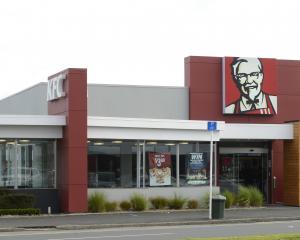
The radiographers, who are members of the Association of Professional and Executive Employees (Apex), have been taking a variety of actions since February over District Health Boards New Zealand's nil pay increase offer.
In their negotiations over the multi-employer collective agreement which expired at the end of September, the union has reduced its claim to a 3% increase.
Apex national secretary Dr Deborah Powell said that action would intensify and widen. She said productivity had increased between 10% and 15% and the boards' 3.2% increase in funding should be passed on.
Action by 51 Otago District Health Board technologists ended yesterday, and it is understood no further strike notices have yet been received by the board.
However, in Southland, further notices have been issued for two days of the Easter break. To date, the action by about 20 technologists there has involved working to rule during the day and limiting overnight cover to life-preserving situations.
Southland Apex delegate Bernadette Gourley said the Easter action would involve limiting cover to life-preserving callouts only for 48 hours.
Mrs Gourley said the accumulated effect of the various actions around the country would be significant, but unfortunately it had not yet resulted in a resumption of talks.
"We would like to see this resolved as soon as possible."
During the action by 51 Otago technologists this week, which ended yesterday morning, on two occasions staff had to be called in for emergencies. The action included total withdrawal of services for two hours on three days and limiting overnight cover.
During industrial action at hospitals, agreements are reached between unions and the board for life-preserving cover.
Otago board diagnostic and support services group manger Sonja Dillon said elective surgery had continued by rearranging procedures during the industrial action times.
The impact on the board's elective targets would not be clear until coding had been completed and the volume of work analysed at the end of the month.
Earlier this month, board chief executive Brian Rousseau had expressed concern at the impact the stoppages might have on the board reaching the level of elective surgery required under its financial recovery plan.
• Medical radiation technologists, who carry out X-rays, ultrasound, magnetic resonance imaging and other specialised imaging techniques, have a starting salary of $46,000 (based on a 40-hour week) after they have completed a three-year bachelor of health science degree in medical imaging.
Advertisement




